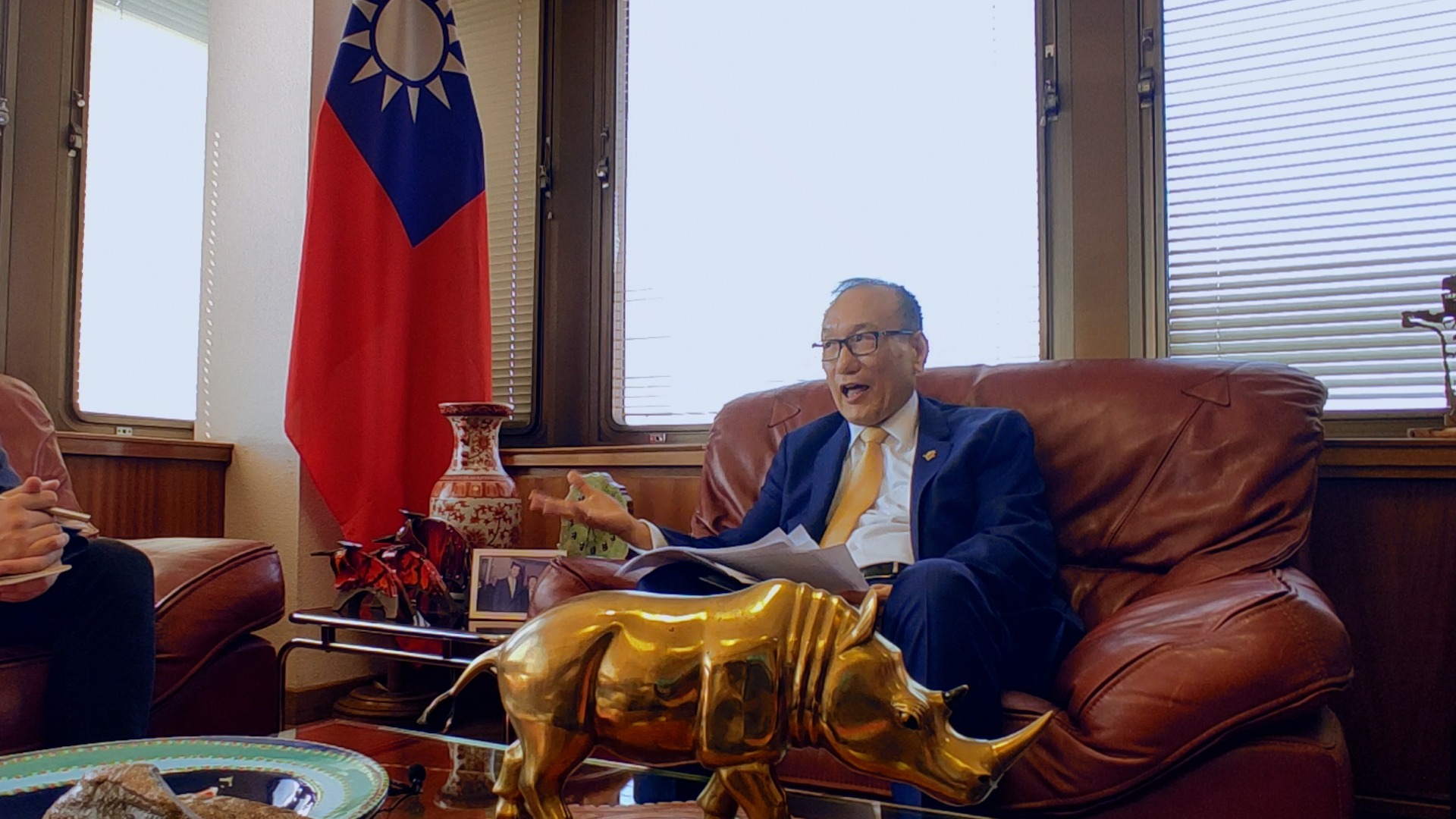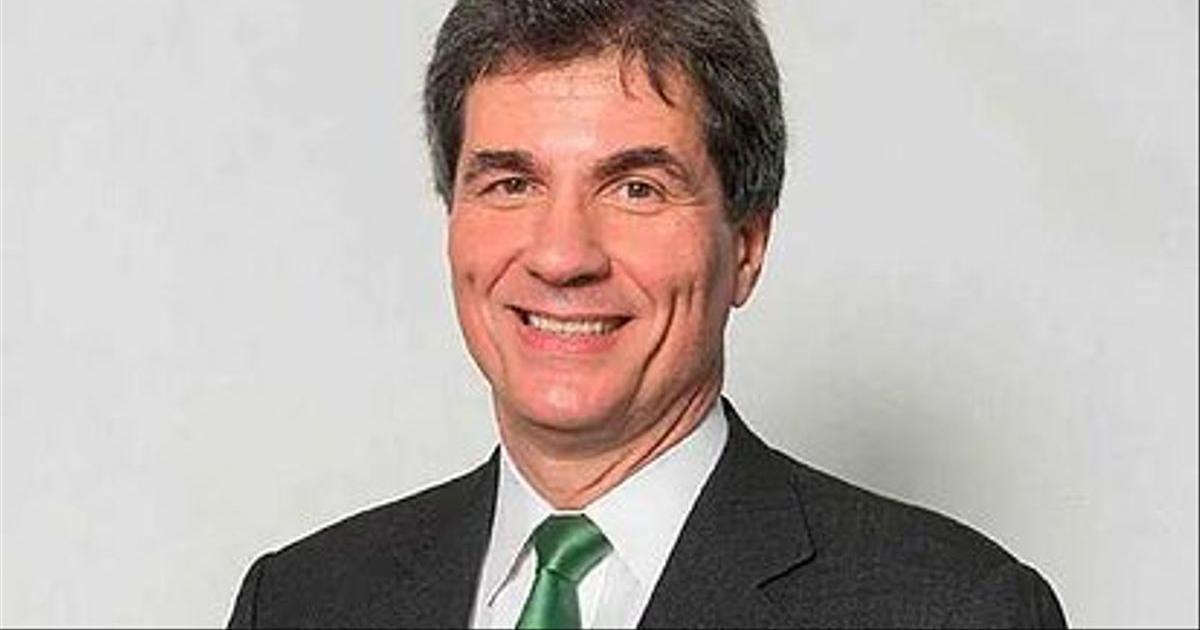Der-li (José María) Liu
Main Taiwanese representative in Spain
Javier Socastro
The Diplomat in Spain visited the Economic and Cultural Office of Taipei, to interview Ambassador Liu about the latest updates on Sino-Taiwanese relations. After stating that he is very comfortable returning to the Spanish capital, the ambassador points out during his video interview the difficulties that the small island faces to defend its self-determination efforts against mainland China.
Ambassador Liu, at The Diplomat in Spain we know your professional career and we noticed the close relationship you have with the Spanish language. How is that?
Once we enter the ministry of foreign affairs, they always want us to master the language of the country we are going to go to. I am a career diplomat and I have been in the ministry for more than 33 years, in which I always represent a Spanish-speaking country. That is why Spanish is already a part of my life.
Taiwan is a very enigmatic region. We have seen that it has been praised as “one of the best managements of the pandemic” throughout the entire 2020. Yet, at the same time, with a population of 25 million inhabitants, Taiwan has vaccinated less than 30% of its population, and less than 2% have a complete schedule. Why is that?
Since the beginning of the pandemic, Taiwan has always had very good control. Although it is also true that in May of this year, there has been a wave of very negative infections for us.
To date, in Taiwan we have a total of 15,637 cases registered since the begining of the covid-19 pandemic, and 787 deaths. Either way, by the end of July, 30% of the population will already have at least one dose.
I think this is the case partly because before May, the control had been too good and therefore people themselves did not really want to receive vaccines.
But now, we have prepared a massive vaccination campaign and Taiwan has received around 9.5 million doses of vaccines. In addition, we continue to work on a two-way program that includes our own production and the acquisition of doses abroad to satisfy the demands of our population.
For this reason, I say that we have done a very good control, and today the rate of vaccines is getting faster.
What impact has the One-China policy had on pandemic management?
A clear example of the negative consequences of the “One China” policy has been the so-called “vaccine diplomacy”. The sole purpose of vaccines should be to save lives unconditionally. However, the Government of Beijing has turned them into an instrument of blackmail to facilitate their hegemonic expansion.
Some diplomatic allies of Taiwan have been tempted by China to switch diplomatic relations from Taipei to Beijing in exchange for access to Chinese vaccines.
We believe that it is necessary for people’s lives to always be above interests that are not exclusively humanitarian. And we reject that China uses vaccines as an instrument of political manipulation.
Are not the statements you just made contradictory with the speech of “national unity” that President Xi himself made very recently in the celebration of the centenary of the Chinese Communist Party?
After what happened recently in Hong Kong, it is clear that the next target of China’s hegemonic expansion is going to be Taiwan.
The formula “one country, two political systems” has turned out to be a complete failure. And what happened is the clearest proof of the decline in freedom and democracy in Hong Kong, something that people of Taiwan will never accept.
Military demonstrations have increased over the past year in the Taiwan Strait. What future prospects does this bring to the region?
During the past year, the Beijing government sent 2,900 Chinese military aircraft into our air defense identification zone. And this 2021, on April the 12th, China sent 25 military aircraft in a single day. Also, on June 15, in a single day, it dispatched a total of 28 aircraft. In other words, this has already become a common practice, and is the clearest example of the hegemonic expansion of China and the lack of freedoms and democracy of the communist regime.
We believe that the Chinese threat is real. The risk of a confrontation with China exists, and that is why we have to be prepared to defend ourselves. Fortunately, we note that the support of the international community is getting stronger, as has been demonstrated at the last G7 summit, in various resolutions passed by the European Parliament and also by NATO member countries.
Taiwan’s security is already seen as a matter of international importance for three reasons: its strategic location, its democratic achievement, and Taiwan’s key role in the global supply chain in the high-tech sector.
Is the semiconductor crisis being an advantage or a disadvantage for China-Taiwan relations?
The crisis in the semiconductor industry is a clear example of a global industry that affects the entire planet. Indeed, it has become an advantage in our relationship with Beijing as we have become the main global player and the linchpin of the semiconductor supply chain around the world.
Safety and stability in the Taiwan Strait are a guarantee for the supply of semiconductors around the world.
Which US administration seems to better off Taiwan’s interests, Trump’s or Biden’s?
The previous US administration had always been very clear about its support for Taiwan. The current one is being clear too, possibly clearer than ever.
The new US government has reiterated that its commitment to Taiwan is “solid as a rock” and has asked China to stop “exerting military, diplomatic and economic pressure on the island.”
How are the diplomatic relations between Taiwan and Spain today?
Taiwan wants to be a “force for good” in this world, but China takes advantage of its economic and military potential to put pressure on the international community, which makes our relationship with Spain difficult.
Even so, we attach special importance to the words of the Spanish President, Pedro Sánchez, who in his recent visit to the United States said that for Spain, China is a “competitor” and a “systemic rival in democratic values.” Therefore, although Spain and Taiwan do not maintain diplomatic relations, our objective must be to strengthen our substantial relations and exchanges in trade, tourism, education, culture, etc. and work with the Government and the people of Spain to achieve mutual benefit.
Our relations with Spain are maintained through our Taipei Economic and Cultural Office in Madrid. And since I am its main representative, our goals have been three. First, to get both countries to know each other better and to intensify our relations. Second, to promote exchanges in commerce, education and culture. Third, implement the presence of Taiwan in the media so that the Spanish people get to know Taiwanese people and what we do.
It is important to mention that during the COVID-19 crisis, we donated half a million masks to Spanish health personnel.
From The Diplomat in Spain we have the feeling that, despite the resources available to the Confucius Institute, in Spain, Taiwan develops a broader cultural activity. How can that be?
Spain and Taiwan are two countries that are characterized by our enormous potential and wealth in the cultural sphere. In fact, the Taiwanese presence in musical and cultural events in Spain is a reality.
Our main difference with the cultural policy of China is that we have no pretensions that go beyond the strictly cultural.
We also do so in the educational field, through our annual call for three types of scholarships to facilitate Spanish students and researchers to travel to Taiwan. One of them is the so-called Taiwan Scholarship, for undergraduate, graduate and doctoral studies. The second is the Huayu Fellowship, to learn Mandarin Chinese, and the third is the Taiwan Fellowship, for researchers or professors who want to deepen their studies of sinology and relationships in the Taiwan Strait.
And before ending this interview, I wanted to use the passage from the Holy Bible of David against Goliath. Taiwan is very small, and Communist China is very large, but we are confident that we will ultimately prevail in this confrontation. In the future we will achieve victory, as David did.







